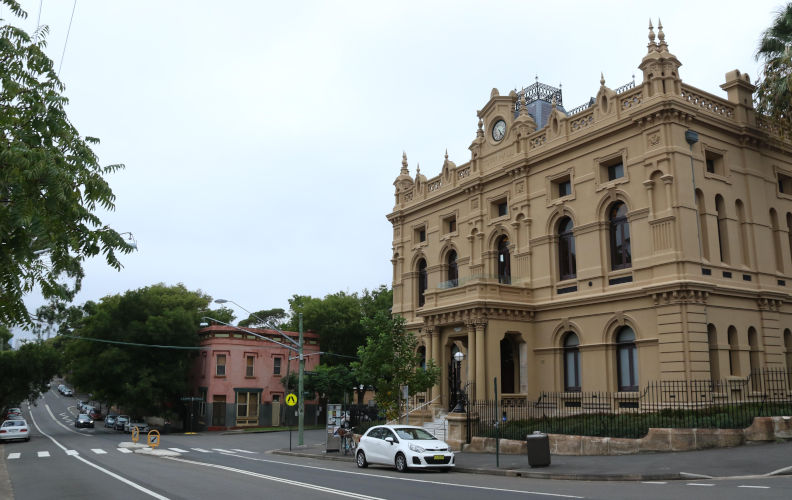Anatomy of a public meeting: genocide a key election issue
March 17, 2025
Sunday evening in a crowded Glebe Town Hall in Sydney, the audience came to hear speakers address several objectives to “make candidates” attitude to genocide a key election issue, hold politicians accountable for genocide, vote for humanity".
Sponsored by Pearls & Irritations and organised by volunteers representing “Australians for Humanity”, well-informed speakers and a supportive audience suggested that success was guaranteed. Yet the meeting veered off course in several ways and left organisers with lessons to learn, even if most audience members seemed grateful and judged “evening successful”.
Aided by an adept chair who referred to the common ground between Palestinians and Indigenous Australians, the first speaker’s account of the human rights base of any humanitarian policy alternative to the death and destruction experienced by Palestinians appealed to listeners. Examples from humanitarian law and from poets’ language of inclusion provided a non-contentious base. So far on course with objectives.
Then came speakers describing political and media attempts to suppress Arab Australian, Palestinian and Muslim voices. Their pleas were powerful, their examples well presented. In response to accounts of protest against Israeli atrocities, the audience applauded and did so again when an expressive student leader described university suppression of activism for Palestine as though students’ human rights-based initiatives could be labelled antisemitic and therefore outlawed.
A clear uncluttered appeal came in a video in which two Palestinian Australians, who had lost family members killed in Israeli air strikes in Gaza, partnered by an Australian of Jewish heritage, asked how could anyone vote for politicians who had colluded in genocide. The audience were moved, listened in silence, then shouted appreciation, apparently in gratitude for the clarity and outrage expressed by the video commentators.
Exasperation mounted. A final speaker substantiated why prejudice towards certain groups of Australian citizens threatened not just vulnerable groups, let alone freedom for Palestinians but also the nature of democracy. Back on track, almost.
In response to statements from the floor about class struggle and class war, a speaker explained why Israeli atrocities were the inevitable result of a decades-old colonialist, imperialist, racially discriminatory project. These historically apt explanations prompted enthusiasm from those who heard what they seemed to want to hear. Navigation toward outcomes veering off course.
Any meeting loses direction if there’s a mismatch between a plethora of information and a simple objective. Genocide as a key election issue became lost in exasperation at suppression of university students or Muslim voters, in dismay about well organised concern about antisemitism even though criticism of these developments was substantial and justified.
Next came a mismatch between different levels of analysis. Many of the audience seemed familiar with explanations of colonialism, imperialism and a need for class struggle, though this was not language to attract and engage large sections of a voting public. Yet when the Palestinian tragedy was described as a war between violence and non violence, between a need to abuse power and a non-violent way of expressing it, several respondents said, “Violence/non-violence, we understand that, we can run with that language. We need that explanation.”
In her respect for inclusion, the meeting’s chair spotted election candidates in the audience and invited them to speak, at which point the meeting’s objectives were replaced by a candidate’s concern with the peculiarities of his constituency and the merits of his campaign. The idea that humanity demanded rejection of anyone who appeared to ignore or even support more slaughter of Palestinians disappeared. Too many claims and interests aided by self-promotion displaced a potential universal appeal.
Concern about genocide meant that antagonism prior to the meeting and at points in it was aimed at the Labor, Liberal and National parties, at government and opposition. The Greens avoided any wrath because they had voted for a ceasefire, supported the rulings of the International Criminal Court and recognition of Palestine. But in deliberations about the politics of support for Palestine there was a significant absence. No-one knew anything about the attitudes towards genocide of Teals and other independent candidates.
A member of the audience tried to help with an explanation of the Teals’ possible views. She explained that her group visited their Teals MP only to be floored by that politician’s introductory remark, “I think Penny Wong is doing a good job”. That could have referred to the minister’s apparent thoughtfulness in response to hostile questions, or it could be interpreted as protecting violators of human rights from scrutiny, or appearing calm when the slaughter of children demanded outrage, or toeing a party line when a dismayed public wanted courage to show how to protect Palestinians from unending Israeli brutalities.
A foreign minister given credit for allegedly doing a good job said nothing about Teals’ attitude to Israeli policies.
An evaluation of a meeting’s outcomes usually benefits from asking what was not done as well as what was achieved. A significant omission in this Sydney meeting concerned members of the public who did not come, who would not have agreed with condemnation of government and opposition, but who might have been influenced.
Addressing the converted raised morale but ignored large sections of possibly indifferent but potentially influential voters. How to address a wider public not just predictable supporters? Answers to that question remained elusive, but present a challenge to organizers of any future meeting.
Walking away into the night, even the most enthusiastic attendees wanted to know, “what to do next?” Apart from recommending they share the video clip and distribute the “Vote for Humanity” flyers, there was no easy answer.
The meeting’s objectives remained worthy and lofty. Israel’s pride in their cruelties to the Palestinian people continued unchecked. Politicians’ collusion with genocide had been condemned, but strategy to multiply the numbers of voters for humanity would have to wait until tomorrow’s deliberations, until the next meeting.
The views expressed are solely those of the author and may or may not reflect those of Pearls and Irritations.


